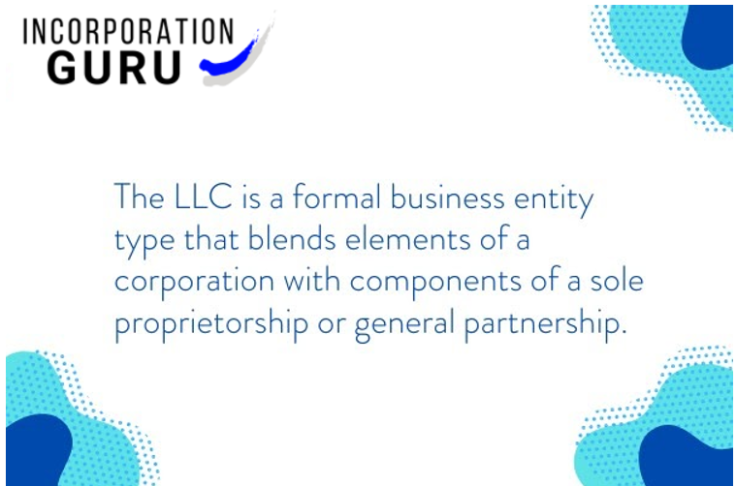The United States Small Business Administration has advised entrepreneurs that "The business structure you choose influences everything from day-to-day operations to taxes and how much of your personal assets are at risk. You should choose a business structure that gives you the right balance of legal protections and benefits." The most common types of business structures are sole proprietorships, partnerships, limited liability companies, and corporations.
The business structure that owners pick will affect how much taxes the company will be required to pay, the business's ability to raise capital, the amount and type of paperwork that will need to be filed, and the owners' personal liability. Businesspersons are required to choose a business structure prior to the registration of the business with the respective state authorities. While it is possible to convert to a different business structure in the future, there may be restrictions based on the location of the business. There could also be unfavorable tax consequences and unintended dissolution in order to do so.
Sole Proprietorship
A sole proprietorship is often a popular choice because it is easy to form and provides complete control over a business. In fact, entrepreneurs do not have to do anything other than conduct business activities to be considered a sole proprietorship—hence it does not require registration of any other kind.
This business structure does not produce a separate business entity. And as a result, business assets and liabilities are not kept separate from the personal assets and liabilities of the owner. Business owners can therefore be held personally liable for any debts and legal obligations of the business. Sole proprietorships are therefore recommended for low-risk businesses or owners that want to test out their business ideas prior to committing to a more formal business structure.
Partnership
If a business consists of two or more people that own the company, then partnerships are the simplest structure to go for. There are two common options when it comes to partnerships: limited partnerships (LP) and limited liability partnerships (LLP).
Limited partnerships will have only one general partner that will undertake unlimited liability, and all other partners have limited liability. The partners with limited liability generally have less control over the business—ideally, this is stipulated in a partnership agreement. Profits are passed through to personal tax returns, the partner without limited liability— is also required to pay self-employment taxes.
Limited liability partnerships are similar to limited partnerships, except that limited liability is given to every owner. An LLP will protect each partner from any debts against the partnership. As a result, they will not be responsible for any actions of the other partners.

Limited Liability Company
A Limited Liability Company (LLC) combines the advantages of both corporation and partnership business structures. Forming an LLC protects business owners from personal liability in most instances. Personal assets such as vehicles, property, and savings accounts — will not run the risk of being attacked by creditors should the business fall into some trouble or in the case of the LLC facing bankruptcy or lawsuits.
LLCs can also benefit from pass-through taxation—this avoids double taxation in that members will only have to pay for their personal income tax. Since profits and losses can get passed through personal income without having to pay corporate taxes, members of the LLC are subsequently considered as self-employed. They will have to pay self-employment tax contributions towards Medicare and Social Security.
LLCs are traditionally a good choice for medium- or higher-risk businesses, entrepreneurs with significant personal assets they wish to protect, as well as owners who are looking to pay a lower tax rate than they would if they chose a corporate structure.
Suggested video:
Corporation
A corporation sometimes referred to as a C corp, is a legal entity that is distinct from its owners. Corporations are able to make a profit, get taxed, and can also be held legally liable.
C corps provide the strongest level of protection to owners against personal liability. However, this does come at a higher cost when forming a corporation than other business structures. Corporations are also required to have more extensive record-keeping, operational processes, and reporting.
They differ from sole proprietors, partnerships, and LLCs in that corporations have to pay income tax on their profits. There are cases where corporate profits will be taxed twice. The first taxation is when the company turns a profit, and then again when dividends are to be paid out to shareholders— on their personal tax returns. Corporations are completely independent and are kept separate from their shareholders. If a shareholder wants to leave the company or sell his or her shares, the C corp is able to continue doing business relatively uninterrupted.
Final Thoughts
When registering a new business, there are a number of factors that entrepreneurs need to consider, and it is always advised that business owners seek professional advice and assistance to ensure that they are able to successfully complete the process without any glitches. Picking the best business structure will depend entirely on the type of business and the plans for the future. However, a limited liability company is one of the best options for small businesses due to the superior asset protection and structure flexibility.
© 2025 Latin Times. All rights reserved. Do not reproduce without permission.



